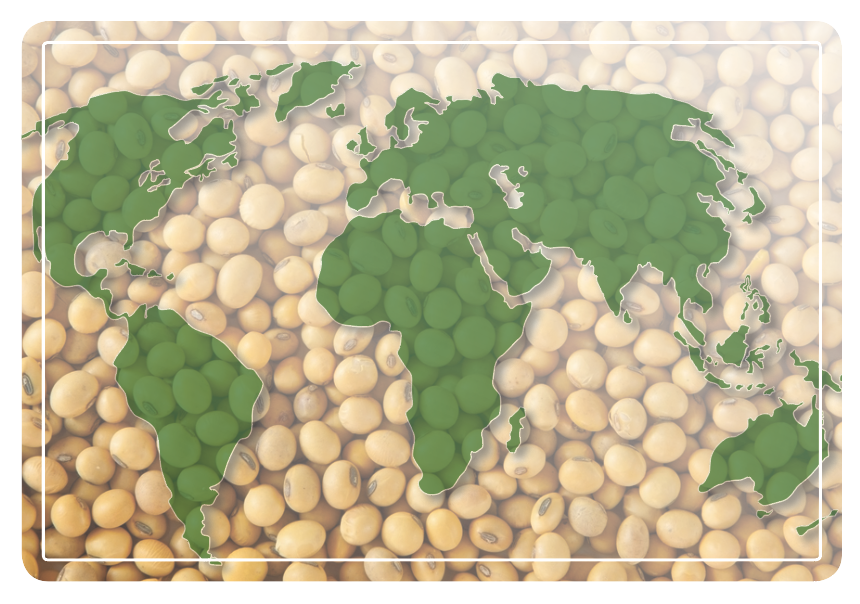Ron Davidson, Executive Director, Soy Canada – Spring (March) Pulse Beat 2020
Outcome of U.S.-China Deal Equates to Government-Managed Trade
For the Canadian soybean sector, the U.S.-China Economic and Trade Agreement signed on January 15 contains both commendable and lamentable provisions.
The Chapter entitled Trade in Food and Agricultural Products is positive in that it contains commitments for:
- science- and risk-based sanitary and phytosanitary measures;
- technical consultations on pesticide maximum residue levels;
- enhanced public acceptance of agricultural biotechnology (GMOs);
- science- and risk-based regulations and expedient approval of biotechnology traits;
- timely management of low-level presence (albeit, in the case of “a U.S. shipment”); and
- respect of WTO obligations to publish laws and regulations pertaining to domestic support programs and policies.
Conversely, the bilateral minimum purchase obligations contained in the Chapter entitled Expanding Trade constitute a repudiation of the international trade promoting policy pursued by successive U.S. governments throughout the past seven decades. Rather than international trade driven by commercial considerations, the minimum purchase obligations imposed by the current deal equate to government-managed trade for at least the next six years.
Specific purchase commitments include:
- Chinese imports of U.S. agricultural goods in 2020 valued at no less than US$12.5 billion above 2017;
- Chinese imports of U.S. agricultural goods in 2021 valued at no less than US$19.5 billion above 2017;
- at the request of the U.S., Chinese endeavour to import $5 billion per year in addition to the specified minimums; and
- anticipation that the “trajectory of increases” registered in 2020 and 2021 will continue during calendar years 2022 through 2025.
Soybean Sector Bears the Brunt of Canadian and Foreign Government Political Decisions
Since September 2018, Soy Canada has advocated consistently for a compensatory payment for soybeans in the context of the severe and unique impacts on the sector of U.S.-China-Canada political decisions. Each succeeding month has provided further evidence of the price, trade, and competitive prejudices being incurred by Canadian soybeans. For example:
- producer prices in Manitoba fell from $408.85 per tonne in May 2018 (the beginning of U.S.-China trade dispute and decreasing futures prices on the Chicago Board of Trade) to $362.77 per tonne in May 2019, a decrease of 11.3% or $46.08 per tonne;
- heavily subsidized soybean imports from the U.S. into Canada exploded from 281,156 tonnes in 2016 and 385,550 tonnes in 2017 to 781,880 tonnes in 2018 and 506,692 tonnes during the first eleven months of 2019;
- Canada exported, on average, only 4,196 tonnes of soybeans to China from January–November 2019, representing only 2.4% of the 2015–2018 four-year annual average of 175,461 tonnes per month (see graph); by comparison, Canada exported, on average, 129,007 tonnes of canola to China from January–November 2019, representing 36.9% of the 2015–2018 four-year annual average of 349,322 tonnes per month; and
- contrary to every year from 2015 to 2018, and coinciding with a political decision by the Government of Canada, this country did not export a single shipload of soybeans to China during the eleven months from January–November 2019.
Certification of Sustainability
Exporters returning recently from visits to the European Union and Japan reported consistent client requests for certification of Canadian soybean sustainability.
The urgency of rapid progress by Canada in sustainability certification is propelled not only by foreign consumer demand and government regulation but also by aggressive U.S. promotion of its Soy Sustainability Assurance Protocol (SSAP). SSAP is a certified aggregate approach audited by third parties that verifies sustainable production at a national scale. It is quantifiable and results-driven with mass balance international verification available.
In collaboration with others in the value chain, Soy Canada has initiated an analysis of key factors such as specific certification requirements by market and by end-use as well as the potential imposition of any associated new requirements on both producers and industry.
Market Development Mission to Europe
Soy Canada led a market development mission for both processing/crushing and identity-preserved soybeans to Italy, Belgium, the Netherlands and Germany from November 21–29, 2019. In each location, the delegation presented a seminar, met with importers and visited soy-related businesses.
Highlights of client comments included: (i) the current or rapidly approaching necessity of sustainability certification of soybeans for use as feed, food, and fuel; and, (ii) the importance of further increasing both the protein and oil content of Canadian soybeans.
Market Acceptance of Pesticide Use Policy
Soy Canada has joined other value-chain organizations in the grains and oilseeds sector in the approval of a Market Acceptance of Pesticide Use Policy. The policy strives to provide an appropriate balance between enabling the commercialization of innovative new chemistry/crop use pattern products while ensuring that Canadian exports are not exposed to unacceptable trade risk.
The objective of the Policy is to proactively evaluate the maximum residue level-related trade risk of chemistry/crop use patterns with new or amended registrations. When value-chain representatives determine that the potential for a maximum residue level-related trade disruption is unacceptable, a recommendation on the use of the chemistry/crop use pattern will be developed for the applicable crop year and communicated throughout the value chain.


